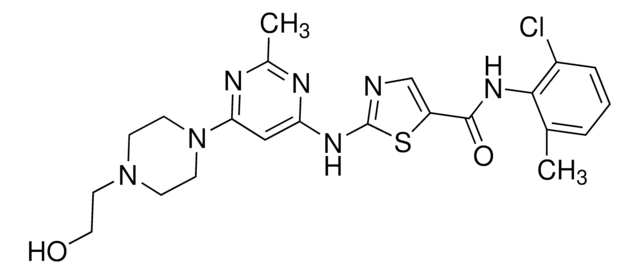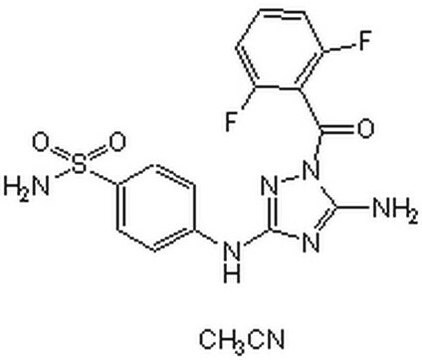17-10400
Anti-phospho-MLKL (Ser358) Antibody Set
from rabbit, purified by affinity chromatography
Sinonimo/i:
Mixed lineage kinase domain-like protein, MLKL
About This Item
Prodotti consigliati
Origine biologica
rabbit
Livello qualitativo
Forma dell’anticorpo
purified antibody
Tipo di anticorpo
primary antibodies
Clone
polyclonal
Purificato mediante
affinity chromatography
Reattività contro le specie
human
tecniche
western blot: suitable
N° accesso UniProt
Condizioni di spedizione
wet ice
modifica post-traduzionali bersaglio
phosphorylation (pSer358)
Informazioni sul gene
human ... MLKL(197259)
Descrizione generale
RECOMMENDED USAGE:
It is recommended to first perform immunoprecipitation on your sample using the non-phosphorylated MLKL antibody for “total” MLKL protein isolation (see protocol section on page 2 of the Certificate of Analysis); then use the immunoprecipitated sample to detect the phosphorylated protein using the phospho-MLKL (Ser358) antibody via western blot.
Specificità
Immunogeno
Applicazioni
Untreated HT-29 cell lysates or lysates from HT-29 cells treated with Cycloheximide,Z-VAD-FMK and TNF alpha were first immunoprecipitated using the Anti-MLKL “total” antibody (1:1000 dilution) to isolate the MLKL protein.
The isolated “total” MLKL protein sample was then probed with Anti-phospho-MLKL (Ser358) (1:1000 dilution).
Componenti
One vial of MLKL “Total” antibody
Qualità
Anti-phospho-MLKL (Ser358) Antibody: Evaluated by Dot Blot on phosphorylated and non-phosphorylated MLKL peptides.
Descrizione del bersaglio
Stato fisico
100 µg (concentration: 1 mg/mL) of Anti- MLKL purified polyclonal antibody in 0.1 M Tris-Glycine (pH 7.4), 150 mM NaCl, with 0.05% sodium azide.
Altre note
Non trovi il prodotto giusto?
Prova il nostro Motore di ricerca dei prodotti.
Codice della classe di stoccaggio
12 - Non Combustible Liquids
Punto d’infiammabilità (°F)
Not applicable
Punto d’infiammabilità (°C)
Not applicable
Certificati d'analisi (COA)
Cerca il Certificati d'analisi (COA) digitando il numero di lotto/batch corrispondente. I numeri di lotto o di batch sono stampati sull'etichetta dei prodotti dopo la parola ‘Lotto’ o ‘Batch’.
Possiedi già questo prodotto?
I documenti relativi ai prodotti acquistati recentemente sono disponibili nell’Archivio dei documenti.
Il team dei nostri ricercatori vanta grande esperienza in tutte le aree della ricerca quali Life Science, scienza dei materiali, sintesi chimica, cromatografia, discipline analitiche, ecc..
Contatta l'Assistenza Tecnica.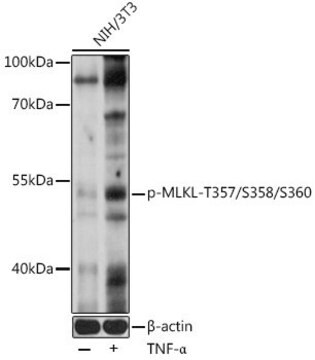
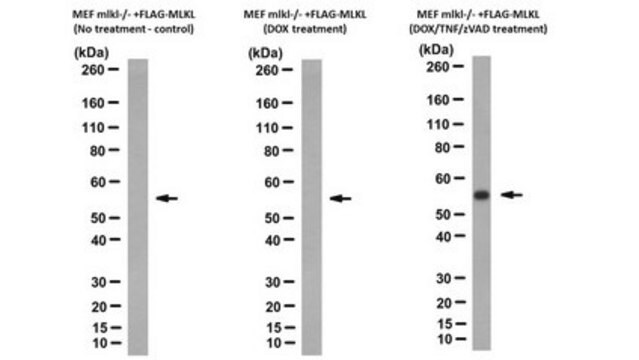

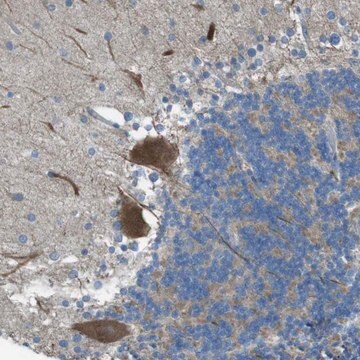

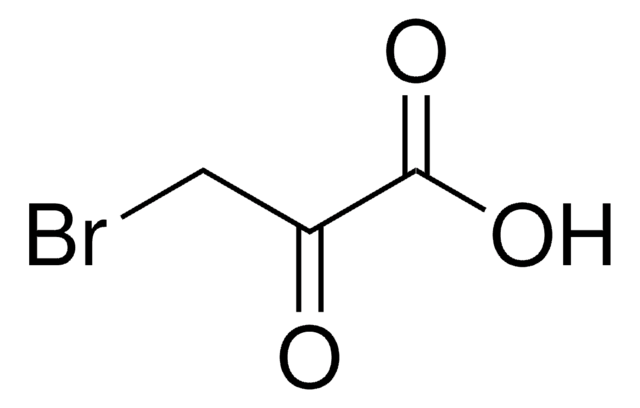
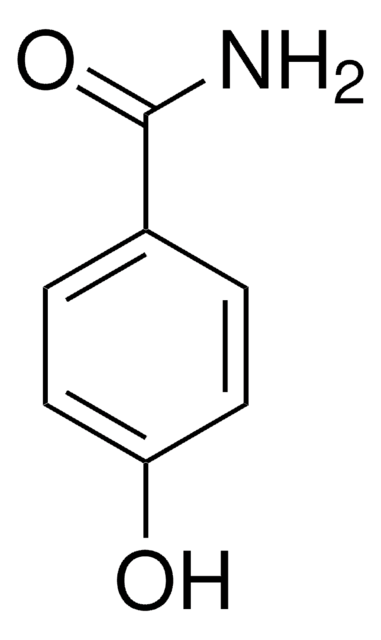
![7-Cyclopentyl-5-(4-phenoxyphenyl)-7H-pyrrolo[2,3‑d]pyrimidin-4-ylamine ≥98% (HPLC)](/deepweb/assets/sigmaaldrich/product/structures/373/481/73848ea9-b1fa-4ae5-8cf0-d135386891ae/640/73848ea9-b1fa-4ae5-8cf0-d135386891ae.png)
